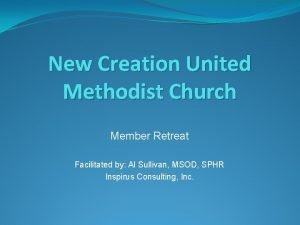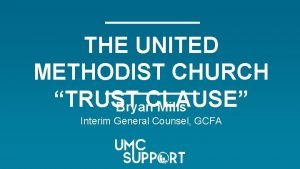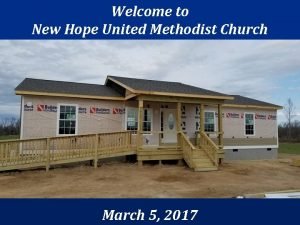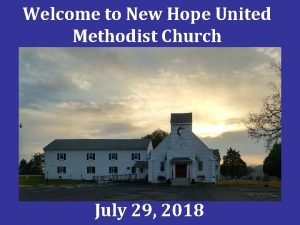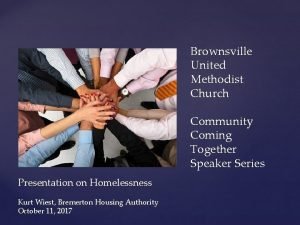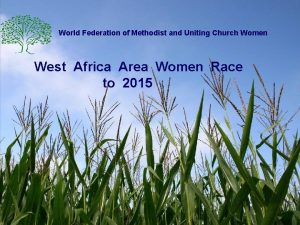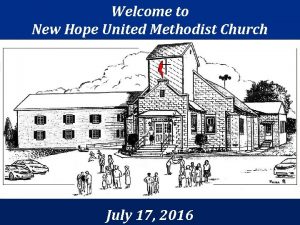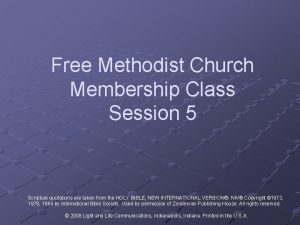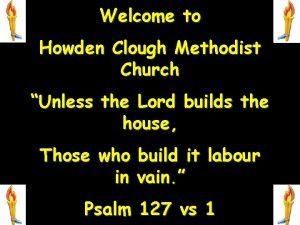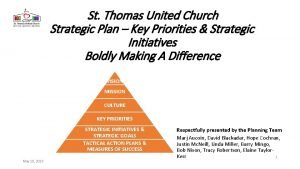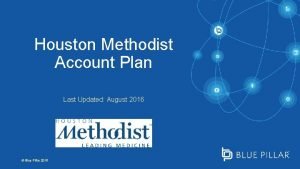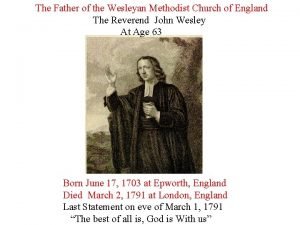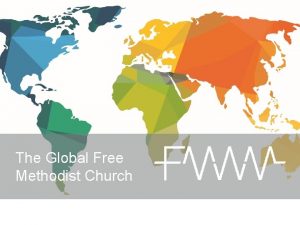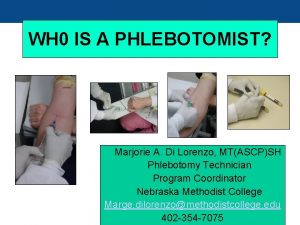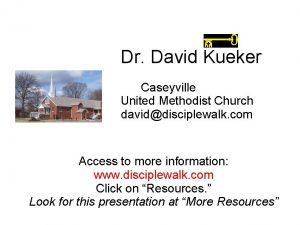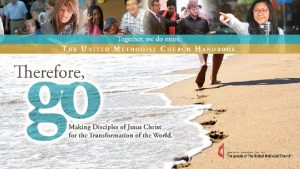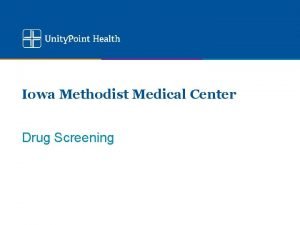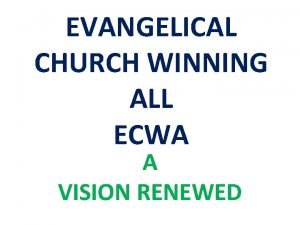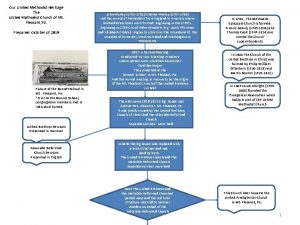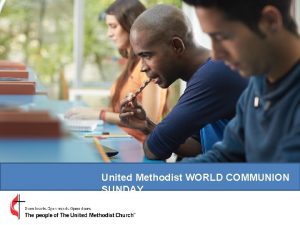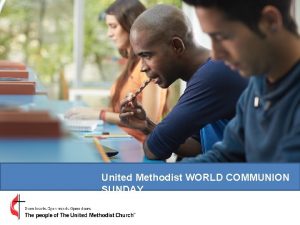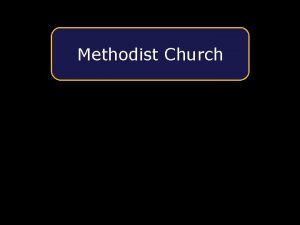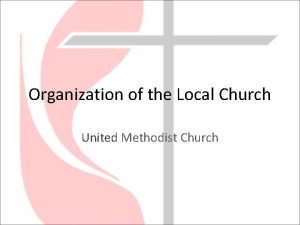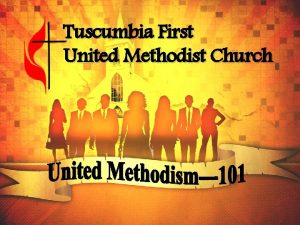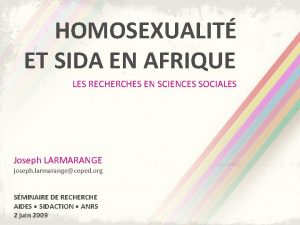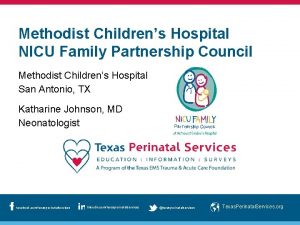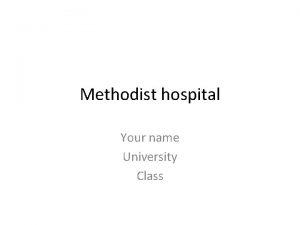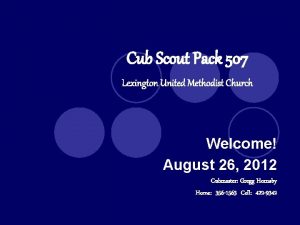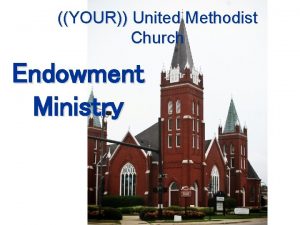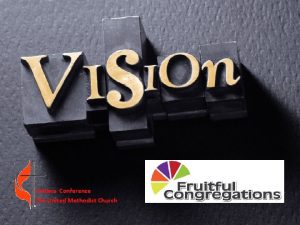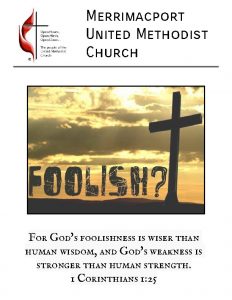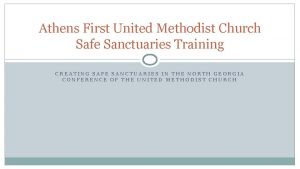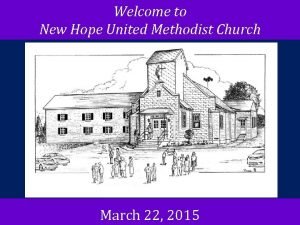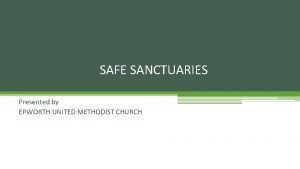Homosexualit y and The United Methodist Church All

























- Slides: 25

Homosexualit y and The United Methodist Church

All this is from God, who reconciled us to Godself through Christ, and has given us the ministry of reconciliation -- 2 Cor. 5: 18

What do you love about being United Methodist?


Covenant We will carefully listen to one another. We will be careful not to judge one another. We are not here to change one another’s positions. (Speak to be understood, not to convince) We will ask questions.

Covenant We will speak our truth in love. We will assume trust not suspicion. We will protect the confidentiality of the conversation. Let everyone participate, no one dominate, allow every voice to be heard. ~ adapted from the Covenant used by The Commission on A Way Forward

What have you heard or what do you know regarding The United Methodist Church and this topic?

The UMC and Homosexuality • • All persons are individuals of sacred worth. The United Methodist Church does not condone the practice of homosexuality and considers this practice incompatible with Christian teaching. We implore families and churches not to reject or condemn lesbian and gay members and friends. We commit ourselves to be in ministry for and with all persons. Self-avowed, practicing homosexuals are not to be certified as candidates, ordained as ministers, or appointed to serve in The United Methodist Church. Ceremonies that celebrate homosexual unions or marriages shall not be conducted by our ministers and shall not be conducted in our churches. No funds are to be used to promote the acceptance of homosexuality or violate the expressed commitment of The UMC “not to reject or condemn lesbian and gay members and friends. ”

A Brief History Lesson


Part 1: The Constitution Part 2: The General Book of Discipline Part 3: Doctrinal Standards and Our Theological Task Part 4: The Ministry of All Christians (Not Church Part 5: The Social Principles Law) Part 6: Organization and Administration (Church Law)

• 1972 – Social Principles: “We do not condone the practice of homosexuality and consider it incompatible with Christian teaching” & “We do not urch Ch t o recommend marriage between two persons of the same sex. ” (N aw) L • 1976 – Organization and Administration: added 3 statements banning the use of church funds to promote homosexuality. (Church Law) • 1980 – 1972 and 1976 positions were left intact. • 1984 – Adopted as the standard for ordained clergy, commitment to “fidelity in marriage and celibacy in singleness” and “self-avowed practicing homosexuals are not to be accepted as candidates, ordained as ministers, or appointed to serve in The United Methodist Church. ” urch Law) (Ch

• 1988 – Added to Social Principles: “We affirm that God’s grace is available to all. We commit ourselves to be in ministry for and with all persons. ” • 1992 – Delegates voted to retain the church’s stand. • 1996 – Added a definition of “self-avowed practicing homosexual, ” and a declaration that ceremonies to celebrate homosexual unions shall not be conducted by United Methodist clergy or in United Methodist churches. • 2000 – added to Social Principles: “We implore families and churches not to reject or condemn their lesbian and gay members and friends. ”

• 2004 – Delegates agreed to a statement of unity: “As United Methodists, we remain in covenant with one another, even in the midst of disagreement, and affirm our commitment to work together for the common mission of making disciples throughout the world. ” Delegates reaffirmed the denominational position. • 2008 – Delegates approved a new resolution to oppose homophobia and heterosexism. • 2012 – Two items stating Christians have different opinions about homosexuality were not approved, leaving the current language intact.

• 2016 – “Bishops, you are our leaders. We need your help. ” (May 17, 2016) The Commission on a Way Forward was established.

Our recent history of conflict: • Polarization has crept into our DNA in the US & the US UMC • Shift in attitudes • Clergy disobedience accelerated after GC 2012 • Episcopal enforcement decreased in some areas • Plan for schism brought to GC 2016

Commission on a Way Forward

3 Plans • One Church • Connectional Conference • Traditional

The One Church Plan This plan would remove the Book of Discipline's restrictive language and allow more freedom for United Methodists to set policies around LGBTQ+ inclusion, according to their own contexts. The Board of Ordained Ministry and Annual Conference Clergy session could choose whether to ordain openly gay clergy. Local Churches and Local Pastors could choose whether or not to conduct same-sex marriages

The Connectional Conference Plan The plan is grounded in a unified core that includes shared doctrine and services and one Council of Bishops, while also creating different branches. The five U. S. jurisdictions would be replaced by three connectional conferences, each covering the whole country, based on theology and perspective on LGBTQ+ ministry: 1. A branch that wants to maintain the current Book of Discipline’s language, 2. A branch that favors a more local approach, 3. A branch that wants full inclusion of LGBTQ individuals in all parts of their fellowship.

The Traditionalist Plan Maintains the current stance of the church regarding the definition of marriage and the ministry of and with LGBTQ+ persons. Flows from the belief that the UMC ought to have one unified moral stance on the issues of marriage and sexuality. This plan affirms current church restrictions related to LGBTQ+ individuals and adds more accountability for enforcement of those restrictions.

2019 – Special Session of General Conference – Delegates considered these 3 plans along with several other plans submitted by groups or individuals. Traditional Plan was passed • Retained current language. • Added “… living in a same-sex marriage, domestic partnership or civil union” to the definition of “self-avowed practicing homosexual. ” • Established mandatory penalties for clergy convicted in a trial for conducting a same-sex marriage. First Offence: 1 year’s suspension without pay. Second Offence: Termination of conference membership and revocation of credentials.

• A process for disaffiliation was established for those who disagree with The Traditional Plan or the Annual Conference’s or the actions or inactions of its annual conference related to these issues. § 2 years’ apportionments § Unfunded pension liabilities § Grants from conference or district in last 10 years § Legal Costs

While it was hoped that the Special Session in February 2019 would provide a way forward for The United Methodist Church, the conference was characterized by anger and vitriol. Response across the US led to the Protocol of Reconciliation and Grace.

What’s at stake, positively and negatively, as we discuss how LGBTQIA+ persons are welcomed into the church? Limiting the discussion to marriage and ordination of LGBTQIA+ persons, what’s at stake here at Davidson?
 John wesley quadrilateral image
John wesley quadrilateral image New creation united methodist church
New creation united methodist church United methodist church trust clause
United methodist church trust clause New hope united methodist church
New hope united methodist church New hope united methodist church
New hope united methodist church Four oaks united methodist church
Four oaks united methodist church World federation of methodist and uniting church
World federation of methodist and uniting church Apostles creed united methodist hymnal 881
Apostles creed united methodist hymnal 881 Nebraska united methodist foundation
Nebraska united methodist foundation United methodist foundation of arkansas
United methodist foundation of arkansas Free methodist foundation
Free methodist foundation Howden methodist church
Howden methodist church St thomas united church
St thomas united church Name 3 points
Name 3 points The apostles creed prayer
The apostles creed prayer Houston methodist webmail
Houston methodist webmail Walter tower methodist map
Walter tower methodist map John wesley methodist
John wesley methodist John wesley methodist
John wesley methodist Free methodist world missions
Free methodist world missions Methodist phlebotomy class
Methodist phlebotomy class Methodist distinctives
Methodist distinctives The apostles creed methodist
The apostles creed methodist Otcurine
Otcurine Evangelical church winning all
Evangelical church winning all Hát kết hợp bộ gõ cơ thể
Hát kết hợp bộ gõ cơ thể

